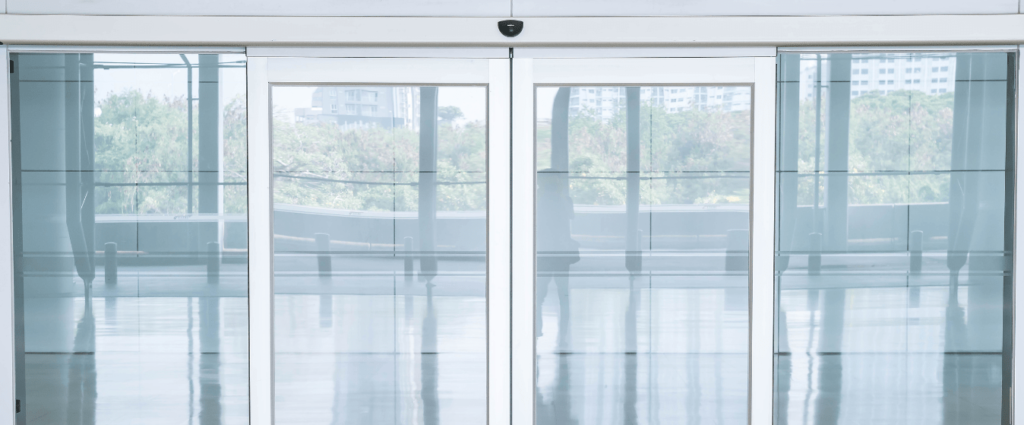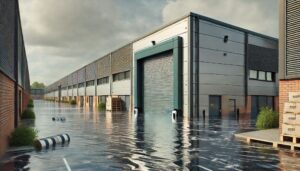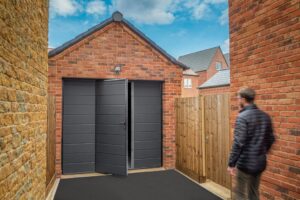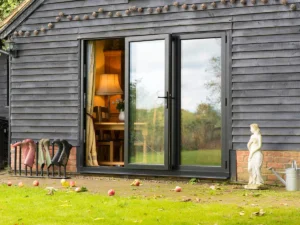
Aluminium vs. Other Shop Front Materials: Which One Should You Choose?
- May 15, 2025
- admin

When it comes to creating the perfect first impression for your business, your shop front plays a crucial role. It is the face of your brand, the very first interaction your customers have with your store—so choosing the right material for your shop front is essential. Among the many materials available today, the aluminium shopfront has become increasingly popular due to its sleek appearance, strength, and versatility.
In this detailed guide, we’ll compare aluminium shopfronts with other common materials such as timber, uPVC, and steel, helping you determine the best choice for your business. We’ll also explore different aluminium door options, including aluminium French doors, aluminium bifold doors, aluminium sliding doors, and aluminium front doors, to give you a comprehensive view of what’s possible.
Why the Right Shop Front Material Matters
The material you choose for your shop front not only affects the aesthetics of your commercial space but also influences security, energy efficiency, maintenance needs, and overall customer perception. Here are some of the critical factors to consider:
- Security– A robust material will better protect your premises from intrusions.
- Durability– Long-lasting materials reduce repair and replacement costs.
- Insulation– A well-insulated front can save money on energy bills.
- Maintenance– Some materials require more upkeep than others.
- Appearance– The look of your shop front should reflect your brand identity.
Overview of Common Shop Front Materials
Let’s begin by comparing some of the most widely used materials for shop fronts:
Aluminium
Aluminium shopfronts are favored in modern retail and commercial architecture for a good reason. They are strong, lightweight, resistant to corrosion, and offer a sleek, professional appearance.
Pros:
- Extremely durable and weather-resistant
- Requires minimal maintenance
- Supports large glass panes for modern aesthetics
- Recyclable and eco-friendly
- Compatible with various door types (sliding, bifold, etc.)
Cons:
- Slightly higher upfront cost compared to uPVC or timber
- Can feel cold or industrial if not designed well
Timber
Wood has a classic, warm appeal and is often used for boutique stores or traditional storefronts.
Pros:
- Elegant, timeless aesthetic
- Customizable through painting or carving
- Good insulator
Cons:
- High maintenance (requires sealing and painting)
- Susceptible to rot, pests, and warping
- Less secure than metal options
uPVC
uPVC is a common choice for residential shop fronts and smaller commercial outlets.
Pros:
- Inexpensive
- Good insulation
- Low maintenance
Cons:
- Less durable than aluminium
- Prone to discoloration over time
- Not ideal for large glass sections
Steel
Steel is robust and often used in high-security environments.
Pros:
- Extremely strong
- Excellent security
- Fire-resistant
Cons:
- Prone to rust if not maintained properly
- Heavier than aluminium
- Less aesthetic flexibility
The Superiority of Aluminium Shopfronts
When comparing all options, the aluminium shopfront stands out for several reasons:
Strength & Security
Aluminium doors and frames are incredibly strong despite being lightweight. They can support large panes of glass without compromising the structure’s integrity, making them ideal for creating modern, open-looking facades. Unlike timber and uPVC, aluminium resists impact and is harder to breach—an essential factor for businesses concerned with security.
Aesthetic Flexibility
Aluminium shopfronts come in various finishes and colors thanks to powder coating options. Whether you’re aiming for a minimalist design or a bold storefront, aluminium allows full customization. Glass integration is seamless, and door types like aluminium French doors, bifold, and sliding doors enhance the visual appeal.
Eco-Friendliness
Aluminium is 100% recyclable without losing its quality. Choosing an aluminium shopfront contributes to sustainable construction practices. Many aluminium frames used today already come from recycled sources, making it a green choice.
Weather Resistance
Unlike wood, aluminium won’t swell, warp, or rot with changing weather. It’s corrosion-resistant, even in harsh climates. This makes it perfect for locations with frequent rain or high humidity.
Low Maintenance
A simple wipe-down is all that’s required to keep aluminium looking new. There’s no need for repainting, sealing, or polishing as with wood or steel. This significantly reduces long-term maintenance costs.
Exploring Aluminium Door Options for Your Shop Front
One of the significant advantages of aluminium is the variety of door options you can integrate into your shop front. Let’s explore them:
Aluminium French Doors
Aluminium French doors offer a stylish and symmetrical look, usually opening outwards or inwards. They’re perfect for boutiques, cafes, and stores that want to create a welcoming entrance with traditional elegance.
Aluminium Bifold Doors
Aluminium bifold doors are ideal for shops and restaurants that want to open up their space entirely to the outdoors. These doors fold neatly to one side, creating a wide opening. They’re perfect for creating a seamless indoor-outdoor experience.
Aluminium Sliding Doors
Aluminium sliding doors are sleek and space-efficient. Instead of swinging open, they glide on tracks, making them ideal for businesses with limited frontage space. They also allow maximum glass area for display.
Aluminium Front Doors
The aluminium front door can be customized to reflect your brand personality. Whether you prefer a modern panel design or full-glass doors, aluminium supports both form and function. It adds a premium look while maintaining maximum security and durability.
Aluminium vs. Timber Shop Front
Appearance: Timber offers a classic charm, but aluminium can mimic this look with woodgrain finishes while delivering superior performance.
Maintenance: Aluminium is virtually maintenance-free, unlike wood, which needs regular upkeep.
Durability: Timber deteriorates over time; aluminium doesn’t.
Verdict: Choose aluminium for longevity and low maintenance; choose timber only if traditional aesthetics are a must-have and you’re prepared for higher upkeep.
Aluminium vs. uPVC Shop Front
Cost: uPVC is cheaper initially but may cost more in the long run due to repairs or replacements.
Security: Aluminium offers better resistance to break-ins.
Design Flexibility: Aluminium allows for larger glass panels and sleek finishes; uPVC is more limited in style.
Verdict: Aluminium wins in all areas except upfront cost. For commercial use, it’s the more professional and durable choice.
Aluminium vs. Steel Shop Front
Strength: Steel edges out aluminium slightly in brute strength.
Corrosion Resistance: Aluminium resists rust better.
Weight: Aluminium is significantly lighter, making it easier and cheaper to install.
Aesthetics: Steel can look industrial; aluminium is more adaptable.
Verdict: Unless you’re designing a high-security environment like a warehouse or bank, aluminium is more balanced in terms of practicality and aesthetics.
Key Considerations Before Choosing Your Shop Front
Budget
While aluminium may cost more upfront than uPVC or timber, it saves money in the long run through minimal maintenance and durability.
Business Type
A luxury boutique might benefit from aluminium French doors for elegance, while a fast-food outlet may prefer aluminium sliding doors for customer flow.
Location
For high-traffic areas or harsh climates, aluminium is your best bet due to its resistance and strength.
Brand Image
Do you want a classic, rustic look or a modern, sleek appeal? Aluminium adapts to both when designed properly.
Final Verdict: Why Aluminium is the Smart Choice
In nearly every category—durability, security, maintenance, aesthetics, and environmental impact—the aluminium shopfront comes out ahead. It offers unmatched versatility, from aluminium front doors to expansive aluminium bifold doors, and suits virtually any commercial space or brand image.
While other materials may work in specific use cases, aluminium offers the best all-round performance, making it the smartest long-term investment for your business.
Frequently Asked Questions
Q: Are aluminium shopfronts more expensive than uPVC?
Yes, initially. But they last longer and need less maintenance, making them more cost-effective over time.
Q: Can aluminium shopfronts be customized to match my brand colors?
Absolutely. Powder coating allows a wide range of custom finishes and colors.
Q: Are aluminium bifold doors secure enough for a retail shop?
Yes. They come with multi-point locking systems and toughened glass options for maximum security.
Q: Do aluminium sliding doors offer good insulation?
Modern aluminium frames are thermally broken and can be fitted with double or triple glazing for excellent energy efficiency.
Q: Can I replace just the door and keep my existing aluminium frame?
In many cases, yes. Aluminium frames are modular, making parts easy to replace or upgrade.
Q:Is aluminium more expensive than timber in the long run?
Although aluminium has a higher upfront cost, its low maintenance makes it cheaper over time.
Q:Can aluminium shopfronts be combined with timber for a hybrid look?
Yes, aluminium frames can be blended with timber finishes for a modern-traditional style mix.
Q:Which material is best for extreme weather conditions?
Aluminium is best suited as it resists rust, warping, and swelling in harsh climates.
Q:Are aluminium shopfronts more eco-friendly than uPVC?
Yes, aluminium is fully recyclable without losing quality, unlike uPVC which degrades after recycling.
Q:Do steel shopfronts offer better security than aluminium?
Steel is stronger, but aluminium provides an excellent balance of security, aesthetics, and durability.
Conclusion
The material of your shop front can impact everything from curb appeal to customer experience and energy bills. While timber, uPVC, and steel have their advantages, the aluminium shopfront offers the most balanced and future-ready solution. Its strength, aesthetics, flexibility, and minimal upkeep make it the best choice for modern businesses.
Whether you’re revamping an old storefront or starting fresh, aluminium doors—be they French doors, bifold doors, or sliding doors—are worth the investment.
So, when it comes to the big question—Aluminium vs. other shop front materials: which one should you choose?—the answer is clear. Go aluminium.





